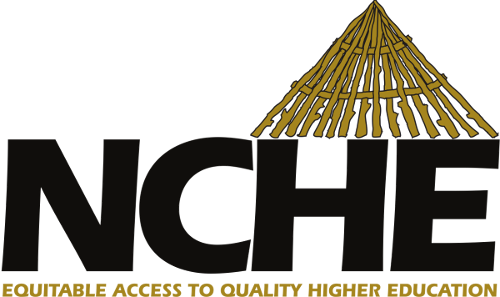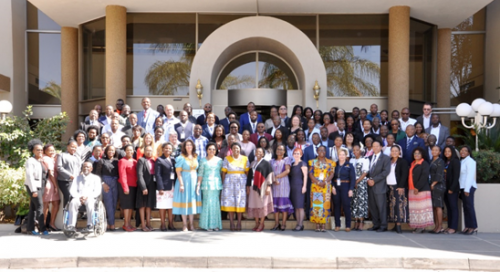The purposes of quality assurance in higher education include ensuring that institutions and academic programmes meet the set quality standards, and deliver the intended learning outcomes to assure the public and students that such institutions and programmes can be internationally recognised, and that they are comparable to similar institutions and programmes nationally and internationally.
The National Council for Higher Education, in partnership with the Namibia Qualifications Authority and the three local universities (University of Namibia, Namibia University of Science and Technology, and the International University of Management), hosted a three-day conference, themed The Role of Quality Assurance Systems in Enhancing Higher Education Outcomes in Namibia. The aim of the conference was to review the implementation of the national quality assurance systems; and share experiences and good practices that promote the culture of quality in higher education institutions. The conference also sought to obtain feedback on the impact of the higher education quality and efficiency on student success as well as on partnerships for promoting quality assurance in higher education among the national quality assurance agencies, professional bodies and the higher education institutions.
The conference, held at Safari Hotel from 27 to 29 August 2019, brought together 130 participants from: National Quality Assurance Agencies; Higher Education Institutions; Government Offices; Professional Bodies, Councils and Associations; Civil Society; Labour Unions; Students and Students’ Associations; and Development Partners. Representatives from the Continental and Regional Quality Assurance Networks and the Association of African Universities also attended the conference.
Dr Alfred van Kent, the Executive Director for Higher Education, Training and Innovation, declared the conference open. He congratulated the quality assurance agencies and the local universities, for organising the conference, and he underscored that any quality assurance standards within an institution could only be as effective as the national and international systems, structures and processes that regulate it. The UNESCO Head of Office and Representative to Namibia, Mr Djaffar Moussa-Elkadhum, also congratulated the Government of the Republic of Namibia on its efforts towards the implementation of the Sustainable Development Goals through the education sector.
Furthermore, Dr Noel Saliu, the Vice President of the African Quality Assurance Network, provided an overview of quality assurance structures and systems at continental level, while Prof. Kuzvinetsa Dzvimbo, President of the Southern African Quality Assurance Network, articulated the situation in the SADC region. Dr Violet Makuku from the Association of African Universities enlightened the participants on the Harmonisation of African Quality Assurance and Accreditation Initiatives.
Ms Sylvia Demas, the Deputy Executive Director for NCHE, outlined the quality assurance structures in higher education in Namibia which include: the national quality assurance agencies or regulators (NCHE and NQA); the Professional Bodies; and the internal quality assurance units and centres in the higher education institutions. Ms Demas further explained that the quality assurance approaches in Namibia’s higher education system, involve: assessing the ability of an institution to establish and maintain the desired quality of academic and other operations (institutional registration and accreditation); evaluating the quality of academic programmes (programme registration and accreditation); assessing the quality of institutional policies, systems and processes (institutional audits); and monitoring institutional quality assurance practices and processes.
There was a panel discussion of the heads of higher education institutions, deliberating on the role of governance and leadership in enhancing a quality culture within institutions. The Institute of Chartered Accountants of Namibia and the Namibia University of Science and Technology also shared lessons on partnerships developed to harmonise quality assurance approaches and respond to industry needs.
Judging from the existence of the structures, legislations, policies or guidelines for quality assurance in higher education, the conference concluded that the status of quality assurance structures and systems in higher education in Namibia are well established. However, the implementation of these instruments pose challenges, which either make it impossible to assure quality of service providers and their academic programmes, or to unnecessarily prolong the process. These challenges are experienced by Quality Assurance Agencies and the higher education institutions.
The conference made valuable recommendations to all stakeholders, namely: Quality Assurance Agencies; the line Ministry; Higher Education Institutions; students; Professional Bodies, and the International Partners. The participants expressed gratitude to the host institutions for organising the First Namibia Quality Assurance in Higher Education Conference and urged them to share the report as soon as it has been finalised. On their part, the host institutions undertook to prepare an action plan for implementing conference recommendations, and to regularise the conference on a biennial basis.


